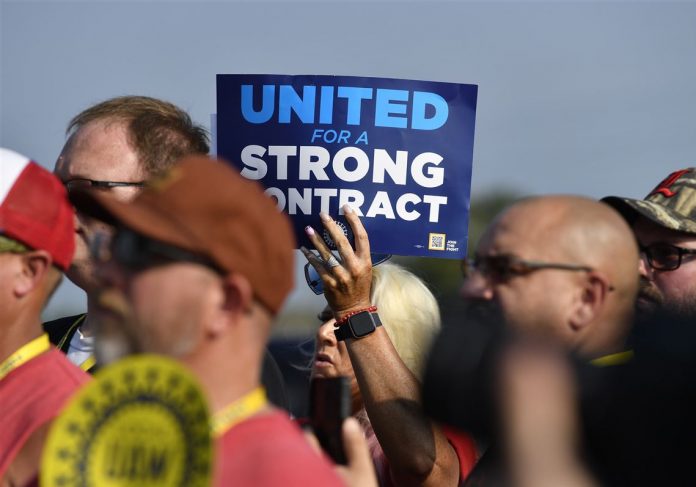The automotive industry is no stranger to challenges, be it the global computer chip shortage or the recent impact of the pandemic. The newest hurdle? The United Auto Workers (UAW) union has decided to carry out strikes against the Big Three automakers. This raises a pressing question for dealerships: how should you communicate with customers during this uncertain time?
Reassure Your Customers
With the buzz surrounding the UAW strikes, many customers will be anxious about their current or future vehicle purchases. It’s paramount to reassure them that while there may be hiccups, your dealership is fully committed to serving their needs.
Your Dealership Remains Open: Emphasize that the dealership doors remain open for business. Highlight that dealerships are independent franchises, meaning they operate independently of the manufacturing companies.
Available Inventory: While the strikes impact the manufacturing of certain vehicles, dealerships will continue to have cars available for sale. According to Jonathan Smoke, chief economist for Cox Automotive, the immediate effects on the inventory won’t resemble the massive shutdowns seen during the pandemic or chip shortages.
Adaptability is Key
The recent automotive crises have, in some ways, prepared dealerships to navigate disruptions more proficiently. Scott Kunes, COO of Kunes Auto and RV Group, points out that many dealers anticipated the strikes and have taken steps to bolster their inventory.
Used Cars and Service Offerings: Well, dealerships have been here before, and you should expect used car prices to rise again. Dealerships should always learn to have a robust offering of used vehicles, which can be a significant area of emphasis during the strikes.
Additionally, service operations will continue, though there might be slight delays due to potential parts shortages.
Managing Expectations for Potential Buyers
While the current UAW strikes might be focused on a few specific models and the Big Three, the ripple effect can lead to broader inventory challenges, especially if the strikes prolong or expand to other US plants.
Timely Communication: If someone’s been eyeing a Ford Bronco or a Jeep Wrangler, it’s a good idea to communicate potential availability issues and encourage them to act promptly.
Flexibility in Choices: Inventory might start to wear thin as the strike progresses. Encouraging flexibility among customers can lead to satisfactory transactions. It might not be the precise shade of blue they wanted, but a similar alternative could be available.
Addressing Factory-Ordered Vehicles
Post-pandemic, many consumers have shifted towards factory-ordering their vehicles. This ensures they get a car tailored to their preferences. However, with the strikes, there’s a potential delay.
Setting Realistic Timelines: For those who’ve factory-ordered vehicles or are considering it, set clear and realistic timelines. While the wait might be longer due to the strikes, transparency is crucial to maintaining trust.
Emphasize Brand Loyalty and Patience
Brand loyalty in the automotive sector runs deep. Many truck buyers, for instance, might choose to wait out the strike rather than turn to a competitive model.
Promotions and Incentives: Consider offering incentives or promotions to loyal customers who choose to wait. This gesture can reinforce their decision to stick with your brand during these trying times.
Staying Ahead
The automotive industry is ever-evolving, and the UAW strikes are just another challenge in a long line of obstacles dealerships have faced over the years. Dealerships can navigate this challenge by maintaining transparent communication, adapting to the situation, and ensuring customers feel valued.



